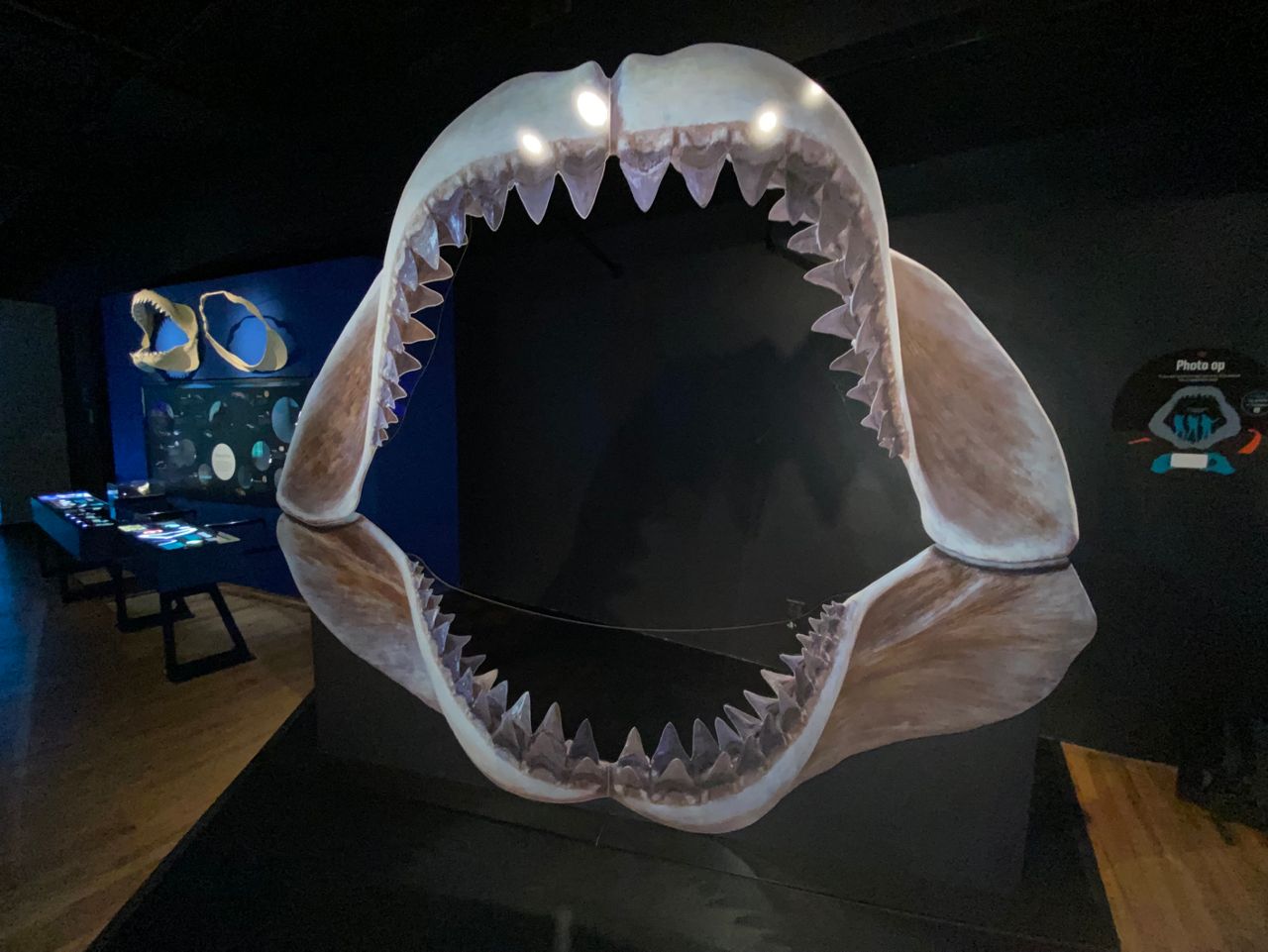NEW YORK — Megalodon was the biggest predatory fish of all time, growing as big as 50 feet long. Don’t worry about seeing them on your next trip to the beach, though.
What You Need To Know
- "Sharks" is a new exhibition opening on December 15th at the American Museum of Natural History
- Sharks have been on the planet for more than 400 million years
- Whale sharks are the biggest fish in the world, reaching up to 60 feet
- One third of species of sharks are classified as critically endangered, endangered or vulnerable
“These appeared somewhere around probably 23, 25 million years ago and then disappeared anywhere people think 2.6 to 3.6 million years ago,” said John Sparks, Curator of the Sharks exhibit at the American Museum of Natural History that opens to the public on December 15.
Sharks have been around. They predate dinosaurs by more than 200 million years.
The exhibit features a diverse array of sharks big and small. A mix of models and touch free interactive displays are all devoted to the ocean creature that has fascinated humans for years.
"What we thought we would try, this is an experiment, is this huge parade of sharks that goes throughout the whole gallery, 110 feet of sharks but integrated with media because we wanted to give you a sense of motion with those models,” said Lauri Halderman, Vice President of Exhibition.

The models are made in the great tradition of the American Museum of Natural History's famous dioramas. Visitors will learn more about the fear of sharks, cultivated by films like "Jaws."
In fact, humans are much more of a threat to sharks with 100 million killed each year due to overfishing and a global market for shark products like meat and oil.
"Right now they are under the biggest threat ever in 400 million years the biggest threat they have faced,” said John Maisey, Curator Emeritus in the Museum’s Division of Paleontology.
Folks at AMNH hope the exhibition will get people thinking about that while learning things about sharks that might blow their minds.
"They might recognize these iconic oceanic species like tiger shark or the great white but they will see so much in this exhibit that they have never seen before,” said Sparks.
Plan your visit at amnh.org.









